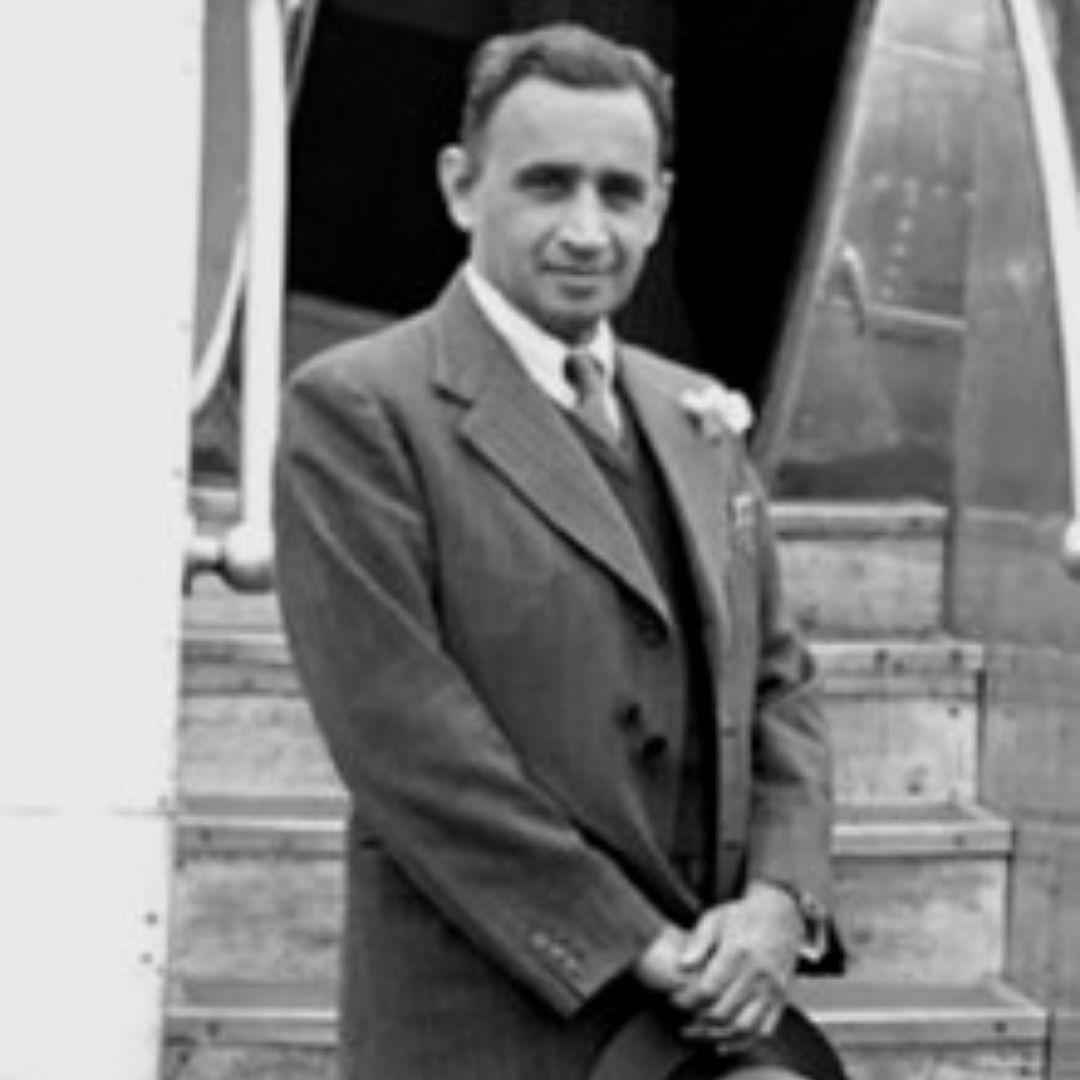
Image Credits: Wikipedia
All You Need To Know About CD Deshmukh, RBI's First Indian Governor
Writer: Tashafi Nazir
For most people, journalism sounds hectic and chaotic. For her, it's a passion she has been chasing for years. With an extensive media background, Tashafi believes in putting efforts on presenting a simple incident in the most interesting way.
India, 25 Sep 2021 11:17 AM GMT | Updated 25 Sep 2021 6:37 PM GMT
Editor : Madhusree Goswami |
A mountain girl trying to make it big in the city. She loves to travel and explore and hence keen on doing on-ground stories. Giving the crux of the matter through her editing skills is her way to pay back the journalism its due credit.
Creatives : Tashafi Nazir
For most people, journalism sounds hectic and chaotic. For her, it's a passion she has been chasing for years. With an extensive media background, Tashafi believes in putting efforts on presenting a simple incident in the most interesting way.
His tenure saw the RBI start a Research and Statistics Department, the demonetisation of banknotes of ₹ 500 and more, the ceasing of the RBI's role as the central banks of Burma and State Bank of Pakistan and the enactment of the Banking Companies Act, 1949, paving a path for regulation of India's banking sector.
Sir Chintaman Dwarakanath Deshmukh, popularly known as C.D. Deshmukh was the first Indian to be appointed as the Governor of the Reserve Bank of India during British rule. He later served as the Finance Minister in the Union Cabinet in 1950-1956, the time he also became a founding member of the Governing Body of National Council of Apllied Economic Research in New Delhi. It is the country's maiden independent economic policy institute set up in 1956 during the tenure of then Prime Minister Jawaharlal Nehru.
According to Wikipedia, Deshmukh also worked as chairman of the University Grants Commission from 1956-1961 and later served as Vice-Chancellor of the University of Delhi from the year 1962-1967. He was a founder of the India International Center in 1959, where he served for a lifetime as a President.
Career As A Civil Servant
Deshmukh worked in the Central Provinces and Berar after returning to India in 1920. He worked in several posts like undersecretary to the central government, deputy commissioner and settlement officer and as secretary to the secretary-seneral at the Second Round Table Conference of 1931. He later became secretary to the finance and public works department. For a brief period, he also worked as joint secretary to the Government of India in various departments like education and health.
At The Reserve Bank Of India
Being a member of the Indian Civil Service, C. D. Deshmukh was the first Indian Governor of the Reserve Bank of India. His association with the top bank started in the year 1939, when he was appointed as the Government's liaison officer. Thereafter, he served as secretary and deputy governor of the Bank. After the demise of James Taylor, he took over stewardship of the Bank and was appointed Governor in August, 1943.
In 1944, he represented his country at the Bretton Woods negotiations during his tenure. He saw the transition to Independence and partition and RBI's division of the assets and liabilities between India and Pakistan. After the bank's nationalisation in January 1949, he helped in its smooth transition from a shareholder's institution to a state-owned organisation.
His tenure saw the RBI start a Research and Statistics Department, the demonetisation of banknotes of ₹ 500 and more, the ceasing of the RBI's role as the central banks of Burma and State Bank of Pakistan and the enactment of the Banking Companies Act, 1949, paving a path for regulation of India's banking sector.
Tenure As Finance Minister
Deshmukh's term as Finance Minister covered the time of the First Five Year Plan. He employed deficit financing as an important tool to bring planned investment but inflation and revenue deficits became enormous challenges during this period. He also served as chairman of a panel of economists that recommended the proposed Second Five Year Plan with its capital intensive development model. He envisioned an essential role for the village and cottage industries in curbing job crisis and inflation caused by deficit financing and made the Congress Working Committee to approve the draft plan.
His maiden budget in 1951-52 proposed an increase in taxes. Next year, he presented an interim budget for 1952-53 and a full-fledged budget in the country's first elected Parliament to which he was elected from the Kolaba constituency of Bombay State.
Deshmukh's tenure is noted for the effective management of the Indian economy and its rapid growth, which made the economy recover from the impacts of the events of the 1940s.
Also Read: Here Is All You Need To Know About Pradhan Mantri Digital Health Mission
 All section
All section














